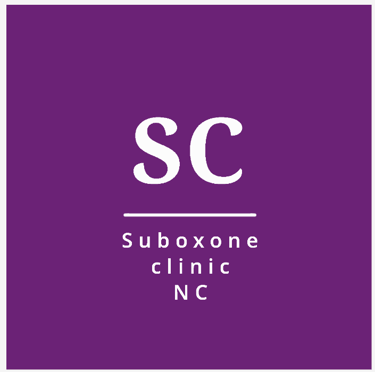Addiction Doctors Near Me: Your Path to Recovery with Suboxone Treatment
Introduction
Opioid addiction is a significant public health crisis affecting millions of individuals worldwide. In the United States alone, opioid overdose deaths have been on the rise, necessitating effective treatment solutions to combat this epidemic. Suboxone, a medication approved by the FDA for the treatment of opioid addiction, has emerged as a pivotal element in managing and overcoming this condition. This article delves into the importance of seeking professional help from addiction doctors, specifically focusing on the availability and benefits of finding "addiction doctors near me." With a focus on sustainable, science-backed treatment strategies, we aim to guide you towards a healthier, addiction-free life.
Understanding Opioid Addiction
Opioid addiction is a chronic disease characterized by an uncontrollable urge to use opioid drugs, despite the harmful consequences. It often begins with the misuse of prescription painkillers such as oxycodone, hydrocodone, morphine, or progresses to the use of illicit drugs like heroin. The addictive nature of opioids is due to their interaction with brain receptors, producing euphoria and pain relief, which can lead to physical dependence and addiction.
The Impact of Opioid Addiction
Opioid addiction affects every aspect of an individual's life. It can lead to severe physical health problems, including respiratory depression, heart disease, and infectious diseases like HIV and hepatitis from needle use. Mental health issues such as depression, anxiety, and cognitive impairments are also prevalent among those struggling with addiction. Socially, opioid addiction can destroy relationships, disrupt careers, and lead to legal and financial troubles.
The Importance of Professional Help
Given the complexity and severity of opioid addiction, professional treatment is crucial. Addiction doctors, who are trained in addiction medicine, offer specialized care that combines medical treatment with psychological support. This comprehensive approach is essential for addressing the multifaceted nature of addiction and providing patients with the best chance for recovery.
What is Suboxone?
Suboxone is a medication that contains buprenorphine and naloxone. It is used in Medication-Assisted Treatment (MAT) for opioid addiction. Buprenorphine is a partial opioid agonist, which means it produces a milder form of the euphoria and respiratory depression seen with full opioids, thereby reducing withdrawal symptoms and cravings. Naloxone is an opioid antagonist that blocks the effects of opioids, reducing the risk of misuse.
How Suboxone Works
Suboxone works by binding to the same receptors in the brain as other opioids, but with less intensity. This helps to:
Reduce Cravings: By partially stimulating opioid receptors, Suboxone helps to diminish the cravings for more potent opioids.
Prevent Withdrawal Symptoms: It mitigates the severe withdrawal symptoms associated with opioid cessation.
Lower Risk of Misuse: The inclusion of naloxone discourages misuse. If Suboxone is injected, naloxone will induce withdrawal symptoms, deterring abuse.
Benefits of Suboxone Treatment
Suboxone has several benefits in the treatment of opioid addiction:
Accessibility: Suboxone can be prescribed by certified physicians, making it more accessible than other treatment options that require inpatient care.
Effectiveness: Studies have shown that Suboxone is effective in reducing opioid use and helping individuals maintain long-term recovery.
Safety: When used as prescribed, Suboxone is a safe option for managing opioid dependence. It has a ceiling effect, meaning higher doses do not increase its effects, reducing the risk of overdose.
Finding "Addiction Doctors Near Me"
Searching for "addiction doctors near me" can be the first step towards recovery. Local addiction doctors provide personalized care and ongoing support, essential for successful treatment outcomes. Here are some steps to help you find a qualified addiction doctor in your area:
1. Research Online Directories
There are numerous online directories and resources that can help you find addiction doctors nearby. Websites like the Substance Abuse and Mental Health Services Administration (SAMHSA) and the American Society of Addiction Medicine (ASAM) provide searchable databases of certified addiction treatment providers.
2. Check Local Health Clinics
Many local health clinics and hospitals have addiction specialists on staff. Contacting these institutions can provide you with referrals to addiction doctors who are experienced in administering Suboxone treatment.
3. Consult Your Primary Care Physician
Your primary care physician can be a valuable resource in finding addiction doctors near you. They can provide recommendations based on their professional network and knowledge of your medical history.
4. Use Telemedicine Services
With the rise of telemedicine, finding addiction doctors has become more convenient. Telemedicine platforms allow you to consult with addiction specialists remotely, making it easier to access care regardless of your location.
5. Read Reviews and Testimonials
Reading reviews and testimonials from other patients can give you insights into the quality of care provided by different addiction doctors. Look for feedback on their approach to treatment, availability, and overall patient experience.
The Role of Addiction Doctors
Addiction doctors play a crucial role in the recovery process. Their expertise in addiction medicine allows them to provide comprehensive care that addresses the physical, psychological, and social aspects of addiction. Here are some key responsibilities of addiction doctors:
Assessment and Diagnosis
Addiction doctors conduct thorough assessments to understand the extent of a patient's addiction and any co-occurring mental health disorders. This involves taking a detailed medical history, performing physical examinations, and utilizing diagnostic tools to evaluate the patient's condition.
Developing a Treatment Plan
Based on the assessment, addiction doctors develop personalized treatment plans that include medication, counseling, and support services. These plans are tailored to meet the unique needs of each patient and are adjusted as needed throughout the recovery process.
Medication Management
Addiction doctors prescribe and monitor medications like Suboxone to ensure they are effective and safe for the patient. They manage dosages, address any side effects, and provide guidance on medication adherence.
Counseling and Behavioral Therapies
In addition to medication, addiction doctors often incorporate counseling and behavioral therapies into the treatment plan. These therapies help patients understand the root causes of their addiction, develop coping strategies, and build a support network.
Ongoing Support and Follow-Up
Recovery from addiction is a long-term process that requires ongoing support. Addiction doctors provide regular follow-up appointments to monitor progress, address any challenges, and adjust treatment plans as needed. They also connect patients with support groups and community resources.
The Importance of a Comprehensive Approach
Treating opioid addiction effectively requires a comprehensive approach that addresses all aspects of the individual's life. This includes medical treatment, psychological support, and social services. Here are some key components of a comprehensive treatment plan:
Medication-Assisted Treatment (MAT)
MAT combines medication like Suboxone with counseling and behavioral therapies. This approach has been shown to improve treatment outcomes by reducing opioid use, increasing retention in treatment, and lowering the risk of overdose.
Counseling and Behavioral Therapies
Counseling and behavioral therapies are essential for addressing the psychological aspects of addiction. These therapies help patients understand their addiction, develop coping strategies, and make positive changes in their behavior. Common approaches include cognitive-behavioral therapy (CBT), contingency management, and motivational interviewing.
Support Services
Support services such as case management, vocational training, and housing assistance can help individuals overcome the social and economic barriers to recovery. These services provide the stability and support needed to focus on treatment and long-term recovery.
Family Involvement
Family involvement in the treatment process can provide additional support and improve outcomes. Family therapy helps address the impact of addiction on the family unit and strengthens communication and relationships.
Holistic Therapies
Holistic therapies such as mindfulness meditation, yoga, and acupuncture can complement traditional treatment approaches. These therapies promote overall well-being and help individuals manage stress and cravings.
Overcoming Barriers to Treatment
Despite the availability of effective treatments like Suboxone, many individuals face barriers to accessing care. Addressing these barriers is crucial for improving treatment outcomes and reducing the impact of the opioid epidemic. Here are some common barriers and strategies to overcome them:
Stigma
Stigma surrounding addiction and treatment can prevent individuals from seeking help. Education and awareness campaigns can help reduce stigma and encourage people to seek treatment. Support from family and friends can also make a significant difference.
Cost
The cost of treatment can be a significant barrier for many individuals. Insurance coverage for addiction treatment has improved, but there are still gaps. Sliding scale fees, payment plans, and financial assistance programs can help make treatment more affordable.
Access to Care
Geographic barriers and a shortage of addiction specialists can limit access to care. Expanding telemedicine services and increasing the number of certified addiction treatment providers can help address these issues.
Legal and Policy Barriers
Legal and policy barriers, such as restrictions on prescribing medications for addiction treatment, can hinder access to care. Advocacy for policy changes and increased funding for addiction treatment can help remove these barriers.
The Role of Support Networks
Building a strong support network is essential for long-term recovery from opioid addiction. Support networks provide emotional support, practical assistance, and a sense of community. Here are some key components of a support network:
Family and Friends
Family and friends play a crucial role in the recovery process. They provide emotional support, encouragement, and practical assistance. Involving them in the treatment process can improve outcomes and strengthen relationships.
Support Groups
Support groups, such as Narcotics Anonymous (NA) and SMART Recovery, provide a safe space for individuals to share their experiences and receive support from others who are going through similar challenges. These groups offer peer support, accountability, and a sense of community.
Healthcare Providers
Healthcare providers, including addiction doctors, counselors, and social workers, are essential members of the support network. They provide medical care, counseling, and support services throughout the recovery process.
Community Resources
Community resources such as housing assistance, vocational training, and legal aid can help individuals overcome the social and economic barriers to recovery. These resources provide the stability and support needed to focus on treatment and long-term recovery.
The Path to Recovery
Recovery from opioid addiction is a journey that requires commitment, support, and a comprehensive treatment plan. Finding "addiction doctors near me" and accessing Suboxone treatment can be the first step towards a healthier, addiction-free life. Here are some tips for navigating the path to recovery:
Set Realistic Goals
Recovery is a long-term process that involves ups and downs. Setting realistic goals can help you stay motivated and focused. Celebrate your achievements and learn from setbacks.
Build a Support Network
Building a strong support network is essential for long-term recovery. Surround yourself with supportive family, friends, and healthcare providers. Participate in support groups and connect with community resources.
Stay Engaged in Treatment
Staying engaged in treatment is crucial for maintaining recovery. Attend regular appointments with your addiction doctor, participate in counseling and therapy, and adhere to your medication plan.
Practice Self-Care
Taking care of your physical and mental health is essential for recovery. Practice self-care by eating a healthy diet, exercising regularly, getting enough sleep, and managing stress. Engage in activities that bring you joy and fulfillment.
Seek Help When Needed
Recovery can be challenging, and it's okay to seek help when needed. Reach out to your support network, talk to your addiction doctor, and participate in support groups. Don't hesitate to ask for help if you're struggling.
Conclusion
Opioid addiction is a complex and challenging condition that requires comprehensive and compassionate treatment. Suboxone, administered by addiction doctors, offers a science-backed, effective solution for managing opioid dependence. By searching for "addiction doctors near me," you can find local, personalized care that supports your journey to recovery.
Remember, recovery is a journey that requires commitment, support, and a comprehensive treatment plan. With the right resources and support, you can overcome opioid addiction and build a healthier, addiction-free life. Seek help today and take the first step towards a brighter future.


